Hydrochlorothiazide/Irbesartan Tablets 12.5mg/150mg Complete Product Profile
Description Hydrochlorothiazide/Irbesartan Tablets combine Hydrochlorothiazide (12.5mg), a thiazide diuretic, and Irbesartan (150mg), an angiotensin II receptor blocker (ARB), to treat hypertension. Hydrochlorothiazide inhibits sodium and chloride reabsorption in the kidneys’ distal tubule, increasing urine output, reducing fluid volume, and lowering blood pressure. Irbesartan blocks angiotensin II receptors, preventing vasoconstriction, which relaxes blood vessels and further decreases blood pressure. This synergistic combination effectively manages high blood pressure and reduces cardiovascular strain, suitable for adults needing dual therapy.
Ingredients Hydrochlorothiazide 12.5mg, Irbesartan 150mg.
Drug Class Thiazide Diuretic and Angiotensin II Receptor Blocker / Antihypertensive Combination.
Dosage Form Tablet (Pack size not specified; typically 10 or 30 tablets per strip).
Uses Hydrochlorothiazide/Irbesartan Tablets are prescribed for:
- Controlling high blood pressure (hypertension).
- Reducing risk of stroke, heart attack, and kidney complications.
- Managing hypertension in patients intolerant to other BP medications.
- Improving blood flow and reducing heart/artery strain.
- Treating fluid retention and edema linked to hypertension.
- Preventing kidney disease progression in diabetic patients with hypertension.
- Supporting overall cardiovascular health.
Doctor’s Review Cardiologists and internists often prescribe this combination for its balanced approach to blood pressure control. As one specialist notes: “Hydrochlorothiazide/Irbesartan is a powerful duo for stubborn hypertension, combining fluid reduction with vessel relaxation. It’s well-tolerated, but electrolyte and kidney monitoring is critical to ensure safety, especially in older patients.”
Dosage (Follow physician’s instructions — typical guideline)
- Adults (Hypertension): 1 tablet (12.5mg Hydrochlorothiazide/150mg Irbesartan) once daily.
- Adjustments: May increase to 12.5mg/300mg or 25mg/300mg daily if needed, after 2-4 weeks.
- Heart failure or kidney disease: Start with Irbesartan 150mg alone; add Hydrochlorothiazide if needed, max 300mg Irbesartan.
- Renal impairment: Avoid if GFR <30 mL/min; use cautiously if GFR 30-60 mL/min.
- Take consistently, with or without food, preferably in the morning.
In Case of Overdose Overdose may cause dizziness, lightheadedness, hypotension, or electrolyte imbalances (e.g., low sodium, potassium). Seek immediate medical attention. Symptoms may include fainting, irregular heartbeat, or confusion. Treatment involves supportive care (e.g., IV fluids, electrolyte correction); dialysis is not effective for removal.
Missed Dose Take as soon as remembered unless close to the next dose. Do not double up to avoid risks like low blood pressure or dehydration. Resume your regular schedule and consult your doctor if misses are frequent.
How to Use
- Swallow tablet whole with a glass of water, ideally at the same time daily (morning preferred).
- Can take with or without food; consistency aids steady effects.
- Monitor blood pressure regularly with a home device.
- Stay upright after taking to reduce dizziness risk.
- Follow a low-salt diet to enhance BP control.
When Not to Use Avoid Hydrochlorothiazide/Irbesartan if:
- Allergic to Hydrochlorothiazide, Irbesartan, sulfonamides, or excipients.
- Severe kidney disease or anuria (no urine production).
- Severe liver disease or biliary obstruction.
- Pregnant, especially in second/third trimesters (fetal risk).
- History of angioedema or severe hyperkalemia.
- Diabetic nephropathy or severe aortic stenosis.
- Active systemic lupus erythematosus (SLE).
Side Effects Common:
- Dizziness, fatigue, weakness.
- Nausea, vomiting, diarrhea.
- Muscle cramps, increased sun sensitivity.
- Low blood pressure, headache.
Uncommon / Severe (Stop and seek medical help):
- Severe hypotension (fainting, weakness).
- Electrolyte imbalances (muscle spasms, irregular heartbeat).
- Skin rash, itching, angioedema (swelling of face/lips).
- Kidney dysfunction (reduced urine, swelling).
Precautions & Warnings
- Screen for allergies to sulfonamides or ARBs before starting.
- Monitor electrolytes (potassium, sodium) and kidney function regularly.
- Avoid sun exposure; use sunscreen to prevent photosensitivity.
- Use cautiously in heart, kidney, or diabetes conditions—report swelling or breathing issues.
- Not safe for pregnancy/breastfeeding—consult your doctor.
- Avoid potassium supplements or salt substitutes unless advised.
Drug Interactions
- Lithium: Increased levels with Hydrochlorothiazide, risking toxicity.
- NSAIDs (e.g., ibuprofen): Reduce Irbesartan’s BP-lowering effect.
- Calcium channel blockers (e.g., amlodipine): Enhanced hypotensive effects.
- Corticosteroids: Increase potassium loss with Hydrochlorothiazide.
- Antidiabetics: Hydrochlorothiazide may raise blood sugar, requiring dose tweaks.
- Cyclosporine: Alters kidney function with Hydrochlorothiazide.
- Sympathomimetics (e.g., epinephrine): May counteract Irbesartan.
Food Interactions
- Limit salt intake to support BP reduction.
- Moderate potassium-rich foods (e.g., bananas, spinach) to avoid hyperkalemia.
- Avoid grapefruit juice—it may increase Irbesartan levels.
- Limit alcohol to prevent dizziness or low BP.
- Avoid high-fat meals; they may delay absorption.
- Stay hydrated, especially in heat or exercise, to counter diuretic effects.
Storage/Disposal
- Store at room temperature (20-25°C), away from light and moisture.
- Keep in original container, tightly sealed, out of reach of children.
- Dispose via pharmacy take-back programs; do not flush or trash expired tablets.
Quick Tips
- Check BP weekly and share readings with your doctor.
- Wear sunscreen and hats to avoid photosensitivity reactions.
- Eat small, balanced meals to ease nausea.
- Report swelling, muscle cramps, or irregular heartbeat promptly.
- Avoid sudden standing to prevent lightheadedness.
Laboratory Screening Regular monitoring is essential while taking Hydrochlorothiazide/Irbesartan. Blood pressure should be checked frequently to ensure the medication is effective. Kidney function tests (e.g., serum creatinine, GFR) and electrolyte levels (potassium, sodium) are critical, as Hydrochlorothiazide can cause imbalances. Monitor for signs of hyperkalemia (muscle weakness, slow heartbeat) or kidney injury (reduced urine output). Blood glucose tests are advised for diabetic patients, as Hydrochlorothiazide may elevate levels. Schedule regular check-ups and report any unusual symptoms like dizziness or fatigue to your doctor immediately.
Disclaimer This information is provided for educational purposes only and does not replace medical advice. Use only under the supervision of a licensed physician. Do not self-medicate.

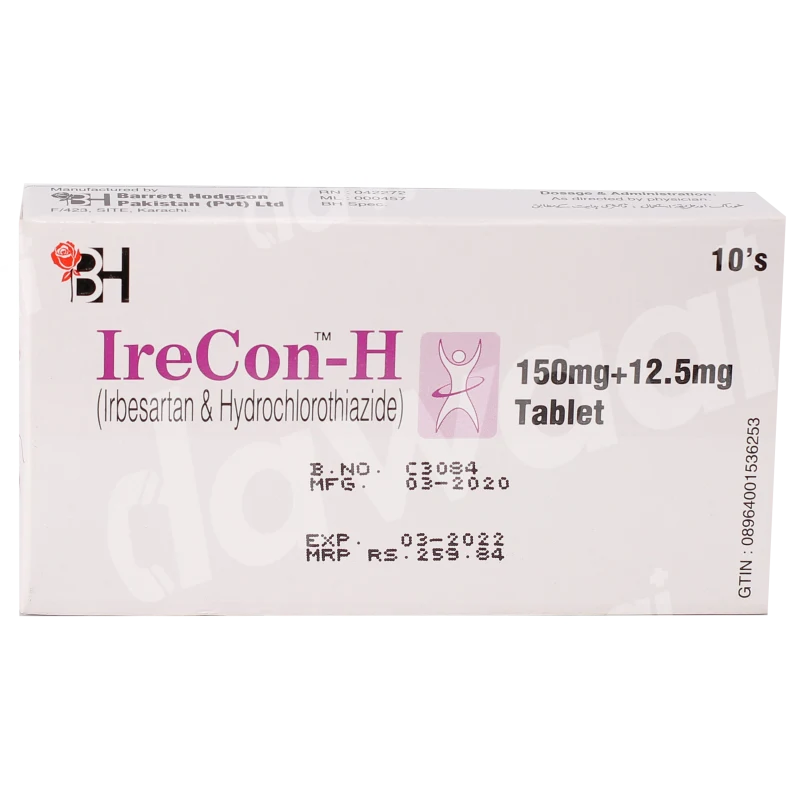
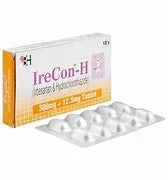
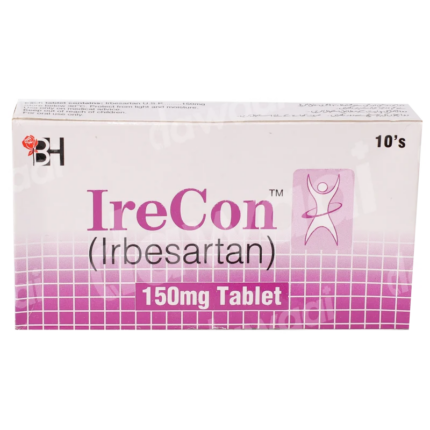
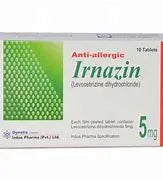
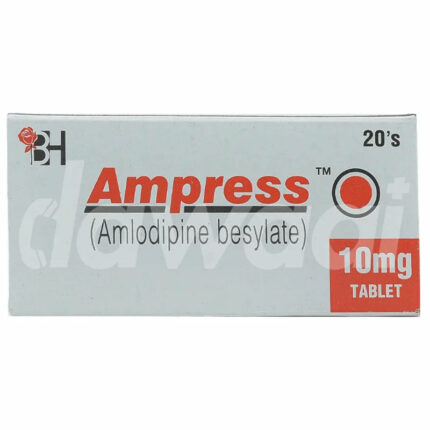
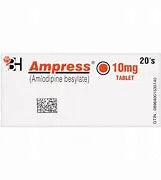
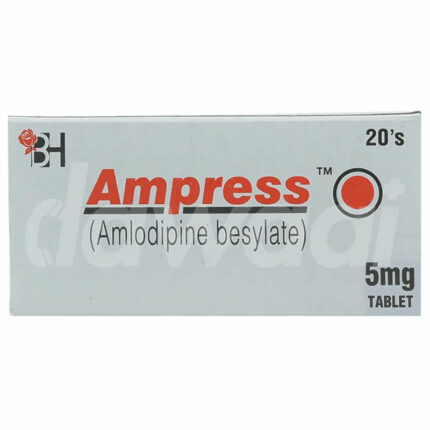
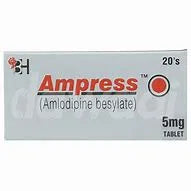

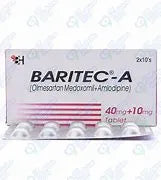
Reviews
There are no reviews yet.